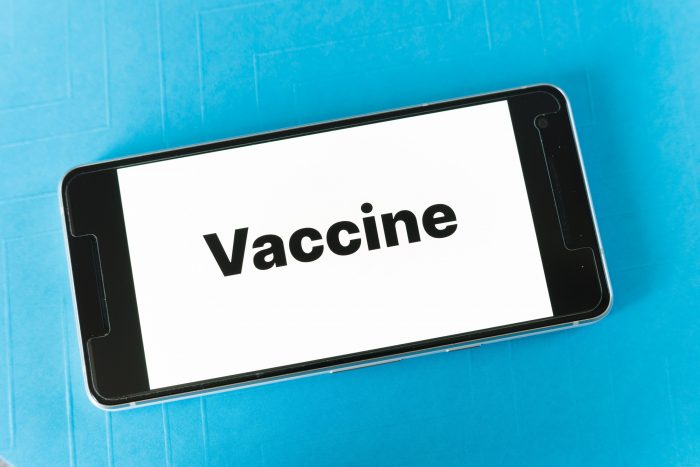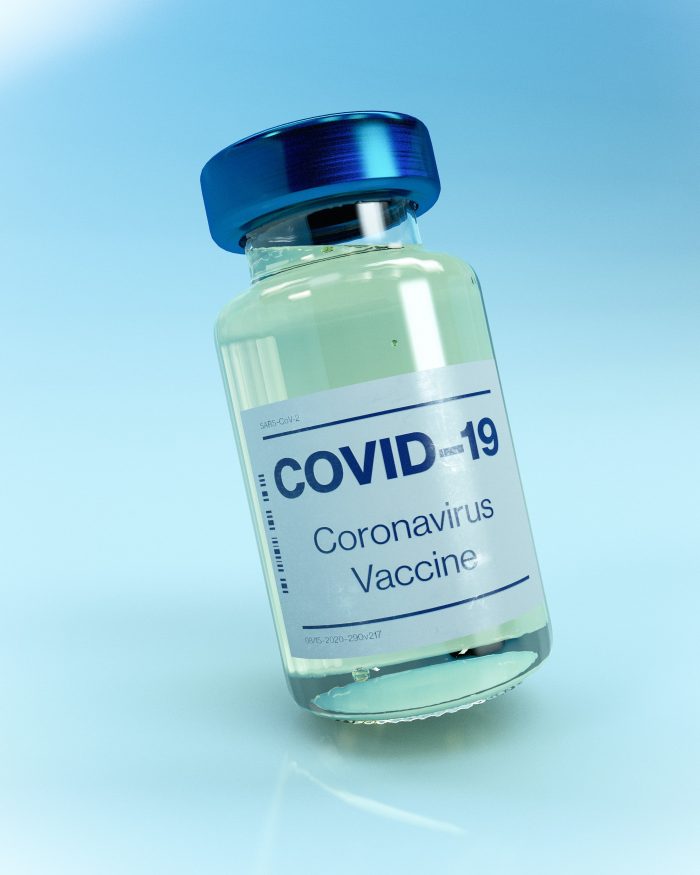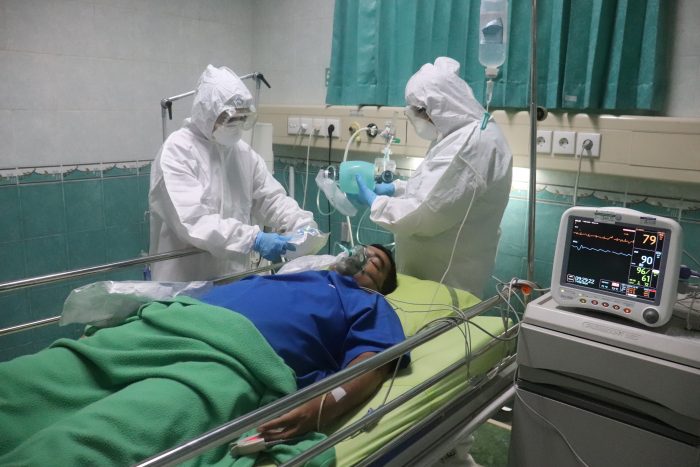Jack Phillips
DHS Highlights Research and Best Practices in Data Analytics for People with IDD, Dual Diagnoses
DOH Encourages Food Safety, COVID-19 Precautions for Upcoming Holidays
Department of Health: Seven More Hospitals Receive COVID-19 Vaccine

Opioid-Involved Emergency Dept Visits in Natl Hospital Care and Ambulatory Medical Care Survey
COVID-19 Interim Vaccination Plan: A Message from DHS

Good afternoon,
As you are likely aware, last week, the Food and Drug Administration (FDA) issued an emergency authorization for the first COVID-19 vaccine. Yesterday, the Centers for Disease Control and Prevention (CDC) approved its use. The below message went out from the Pennsylvania Department of Health (DOH) earlier today; it details Pennsylvania’s current COVID-19 vaccination plan and a request for feedback.
“In recent weeks, the Department of Health has significantly ramped up efforts to prepare for a safe and efficacious vaccine rollout for Pennsylvania. During this preparation, DOH has assembled the Pennsylvania COVID-19 Interim Vaccination Plan. Please note that this is an iterative plan that will be ever evolving as we continue to learn more through our channels of partnership with the federal government. This interim plan is provided as guidance for distribution and administration of the COVID-19 vaccine throughout 66 of the 67 counties in the Commonwealth of Pennsylvania; it is provided by DOH and its public and private partners. Philadelphia County will receive independent federal funding and is establishing its own COVID-19 vaccination administration plan; however, the department will continue to communicate and cooperate with the public health officials of Philadelphia. The goal of this interim COVID-19 vaccination plan is to provide a transparent strategy to vaccinate all Pennsylvanians who want to be vaccinated so that they can return to everyday activities as quickly and safely as possible.
“Feedback is welcomed and essential throughout our continued administration-wide coordination and collaboration to drive a successful vaccine rollout. The administration is working to create a process and defined space where all stakeholders can send their comments and concerns.
“COVID-19 has changed the way Pennsylvanians connect and support one another. This virus does not discriminate, and what this virus has shown is how interconnected we all are. You all play significant roles in keeping Pennsylvanians safe and healthy. Our vision at the Pennsylvania Department of Health is a healthy Pennsylvania for all, and we remain laser-focused on this goal.”
The Department of Human Services (DHS) would like to be sure that you are aware of this interim plan and that you are able to provide feedback relevant to your work and the people you serve. As mentioned in DOH’s message, the administration is developing a process and centralized location for receiving ongoing stakeholder feedback. When that becomes available, we will share it, but for now, we want you to have the current plan so that you can review it. Additional updates and information will be shared as they become available.
We have reached an important milestone in our fight against COVID-19. The availability of a vaccine and the start of this process will require continued collaboration and partnership, but I am confident that this is a process through which we will navigate and succeed together. While I have hope, we must also remember that we are experiencing an incredibly difficult surge in Pennsylvania, and, as a nation, we are approaching 300,000 deaths. The vaccine will be a critical defense for our most vulnerable, our frontline workers, and, eventually, the general public. For now, we must continue to closely follow mitigation guidelines on masking, distancing, and limiting trips and contact outside the home.
Thank you for all you do. We look forward to working with you as we move forward in this critically important process.
Teresa Miller, Secretary of the Department of Human Services
Department of Health: Pennsylvania to Receive 97,500 Doses of COVID-19 Vaccine Going to 87 Hospitals; Philadelphia County to Receive 13,650 Doses

DDAP Announces New ASAM Alignment FAQ is Available
We are pleased to announce that the frequently asked questions (FAQ) document for the American Society of Addiction Medicine (ASAM) alignment of Level 2.0 Intensive Outpatient and Partial Hospitalization Services has been posted on the DDAP website.
DHS Racial Equity Action Kick-Off – Day Five

Good morning,
I hope you’ve all had a good week! We’re in the final day of our Racial Equity Action Week, and I hope that each of you have found these readings, videos, and questions for consideration helpful. As many of us have learned over the last six months, beginning this work and our personal education in order to broaden our perspective around race and inequity and how they exist in our country can be overwhelming due to not being sure where to begin. My goal with this week has been to make these subjects approachable for each of us and applicable to our work and workplaces.
For our final day of readings today, we’re going to focus on current issues that face our country and topics specific to work at the Department of Human Services (DHS). This will not be a comprehensive list, but I hope that it can help you further dig into how race and equity affect our work. Today’s readings can be found here.
COVID-19 has affected all of us in some way this year. For many of us, it has consumed our daily work. Beyond that, it has touched all of our lives in some way, even if we have not experienced it or lost a loved one ourselves. Experiences are showing that this pandemic is not affecting all communities equally; non-white communities are experiencing the public health and economic crises acutely. Inequality.org’s COVID-19 and Inequality, NPR’s “As Pandemic Deaths Add Up, Racial Disparities Persist — And In Some Cases Worsen”, The Atlantic’s “In a Pandemic, All Some People See is Your Color”, and Kaiser Health News’s “Why Black Aging Matters, Too” all detail the pandemic’s effects on racial groups.
However, health disparities between different races are not new. “‘Racial Inequality May Be As Deadly As COVID-19,’ Analysis Finds” from NPR details this fact, and much of the Wolf administration’s health innovation work seeks to address these disparities. DHS has engaged in this work in North Philadelphia’s Health Enterprise Zone since 2017, and work is in place to study disparities and enact solutions in other communities around the commonwealth. This work must also extend to mental health and supporting culturally informed and appropriate behavioral health systems that are equipped to address trauma faced by non-white communities, writes NPR. We must also think about how inequity can affect children starting in their earliest years. “Education Inequality Starts Early” from the US News and World Report and “The School-to-Prison Pipeline” from Teaching Tolerance explains how inequity can set a foundation that affects children into adulthood.
As you read and watch these resources, I encourage you to think about the following questions:
- How have communities of color been impacted during the COVID-19 pandemic? Are these effects portrayed as the result of structural issues?
- How do inequities play out in my work? What can I do through my work to advance equity for all Pennsylvanians?
- How do I move forward with this knowledge?
- How can I apply what I’ve learned to my work? To my relationships with my colleagues? To my everyday life?
I also encourage you to have these conversations with your coworkers if you are comfortable and able to do so. This is an opportunity for us to learn together, share our experiences, foster understanding and community, and build stronger bonds through these difficult but extremely necessary conversations.
Remember, these articles are meant to be a foundation and introduction that you can build from. They are not the only sources and perspectives on these issues.
I always say that DHS’s work serves more than three million people directly, but it touches nearly ever Pennsylvanian at some point in their lives – be it through the early childhood education system, public assistance, child welfare, health care, or long-term care. Because of this, I feel that we have an obligation to be leaders in this space. Pennsylvanians and our nation are not a monolith. We all have different identities, experiences, backgrounds, and perspectives. We must be mindful about how our identities can shape our experiences and use this knowledge to be active allies against racism, inequity, bias, and discrimination that is both consciously held and unconsciously advanced.
Our education cannot end here. I encourage you to continue to pursue information and read in a way that broadens your perspective. Seek out voices and experiences that you may not know first-hand but from whom you can learn. This work can only make us stronger, more empathetic, and better public servants, colleagues, and people.
Moving forward, we will continue to share opportunities to grow and learn in this space. However, if you are looking for other avenues to continue to learn, I highly recommend Emmanuel Acho’s Uncomfortable Conversations With A Black Man series.
Listening with an open mind and an open heart is the first and most important thing we can do to be an active ally to our friends, neighbors, and colleagues. This is a constant journey, but I appreciate the time you have all taken to be a part of it with me.
Teresa Miller, Secretary of the Department of Human Services














